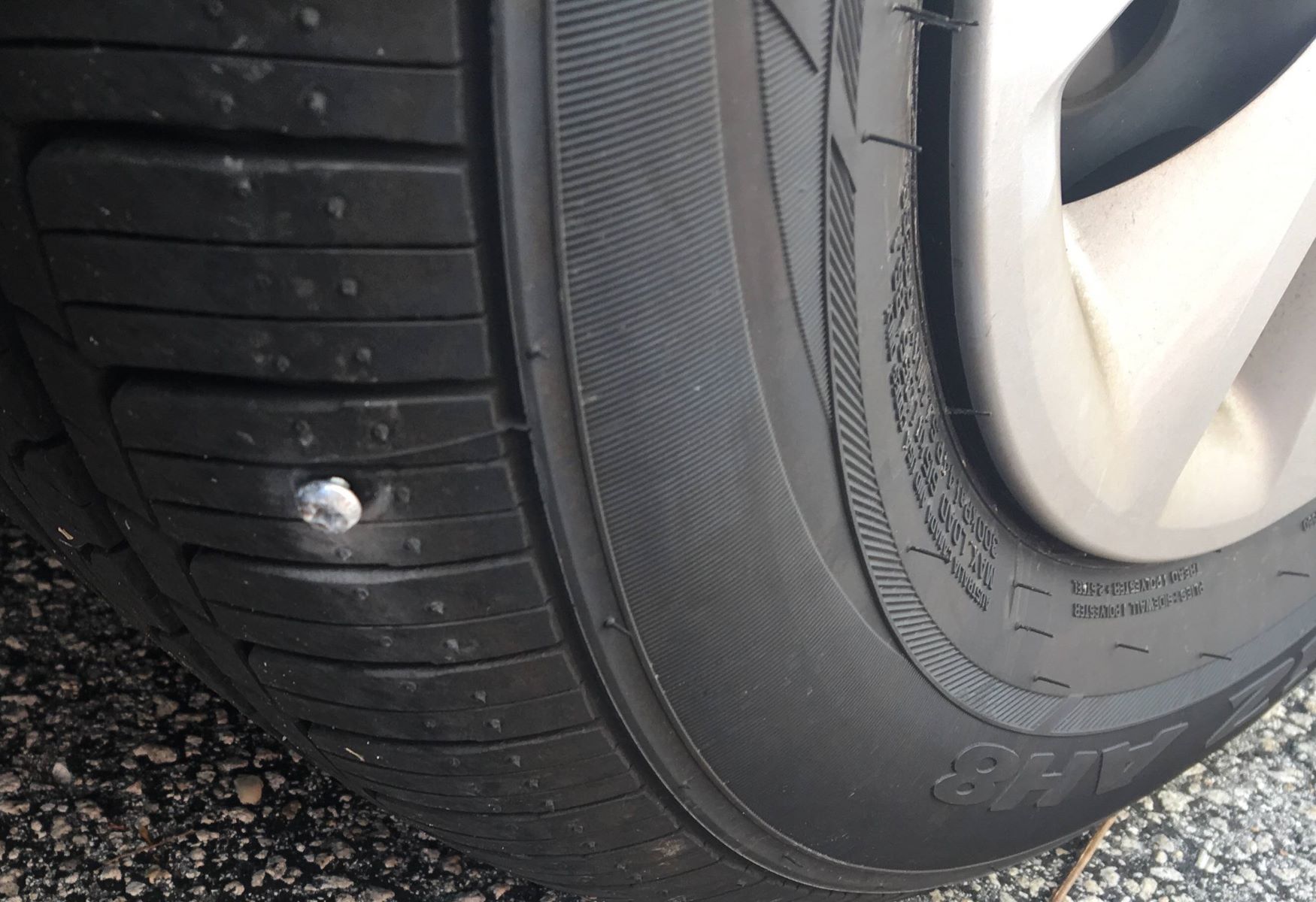Home>Automotive>Common Concerns About CVT Problems In A 2018 Nissan Sentra: Should I Consider Trading It In?


Automotive
Common Concerns About CVT Problems In A 2018 Nissan Sentra: Should I Consider Trading It In?
Published: February 19, 2024
Learn about common concerns with CVT problems in a 2018 Nissan Sentra and whether trading it in is a viable option. Get expert advice on automotive issues.
(Many of the links in this article redirect to a specific reviewed product. Your purchase of these products through affiliate links helps to generate commission for Regretless.com, at no extra cost. Learn more)
Table of Contents
Introduction
The continuously variable transmission (CVT) has become increasingly popular in modern vehicles due to its smooth driving experience and improved fuel efficiency. However, like any mechanical system, CVTs are not immune to issues. If you own a 2018 Nissan Sentra with a CVT, you may have encountered concerns about its performance and reliability. This article aims to address common concerns about CVT problems in the 2018 Nissan Sentra and provide insights into whether trading it in is a viable option.
Understanding the intricacies of CVT problems is crucial for vehicle owners, as it empowers them to make informed decisions about maintenance and potential trade-ins. By delving into the symptoms, costs, and considerations associated with CVT issues, this article aims to equip you with the knowledge needed to navigate this aspect of vehicle ownership effectively.
As we explore the common concerns and potential solutions related to CVT problems in the 2018 Nissan Sentra, it's essential to approach the topic with a balanced perspective. While some issues may warrant immediate attention and repair, others may prompt you to consider the possibility of trading in your vehicle for a more reliable alternative. Let's delve into the intricacies of CVT problems in the 2018 Nissan Sentra and unravel the best course of action for addressing these concerns.
Understanding CVT Problems in a 2018 Nissan Sentra
The continuously variable transmission (CVT) in the 2018 Nissan Sentra is designed to provide a seamless driving experience by continuously adjusting gear ratios for optimal performance and fuel efficiency. However, despite its innovative design, some owners have reported concerns related to the reliability and performance of the CVT in their 2018 Nissan Sentra.
One of the primary issues associated with the CVT in the 2018 Nissan Sentra is the potential for transmission fluid overheating. This can lead to diminished performance, unusual noises, and even transmission failure if not addressed promptly. Additionally, some drivers have experienced issues with acceleration, where the CVT may exhibit delayed or erratic responses, impacting the overall driving experience.
Furthermore, owners have reported instances of the CVT exhibiting vibrations or shuddering during acceleration, which can be indicative of underlying transmission issues. These symptoms may be accompanied by illuminated dashboard warning lights, signaling the need for immediate attention to prevent further damage to the transmission system.
It's important to note that while the CVT in the 2018 Nissan Sentra offers benefits such as smooth acceleration and improved fuel economy, these reported concerns underscore the significance of proactive maintenance and attentive monitoring of the transmission system.
Understanding the nuances of these potential problems empowers owners to take proactive measures, such as regular transmission fluid checks and timely servicing, to mitigate the risk of more severe issues arising. By staying attuned to the performance of the CVT and promptly addressing any irregularities, owners can potentially prolong the lifespan of their transmission system and maintain the overall reliability of their 2018 Nissan Sentra.
In the subsequent sections, we will delve deeper into the common concerns and symptoms associated with CVT issues in the 2018 Nissan Sentra, shedding light on the potential costs of addressing these problems and exploring the option of trading in the vehicle as a viable solution. This comprehensive approach aims to provide owners with the insights needed to navigate the complexities of CVT problems effectively.
Common Concerns and Symptoms of CVT Issues
The 2018 Nissan Sentra, equipped with a continuously variable transmission (CVT), has garnered attention due to reported concerns and symptoms related to its performance. Understanding these common concerns and symptoms is pivotal for owners to identify potential issues and take proactive measures to address them.
Delayed or Erratic Acceleration
One prevalent symptom of CVT issues in the 2018 Nissan Sentra is delayed or erratic acceleration. Owners have reported instances where the vehicle exhibits a lack of responsiveness or unpredictability during acceleration, impacting the overall driving experience. This symptom can manifest as a noticeable lag between pressing the accelerator and the vehicle's actual speed increase, potentially indicating underlying transmission irregularities.
Transmission Fluid Overheating
Another common concern associated with the CVT in the 2018 Nissan Sentra is the potential for transmission fluid overheating. When the transmission fluid exceeds optimal operating temperatures, it can lead to diminished performance, unusual noises, and even transmission failure if left unaddressed. Owners may observe warning indicators, such as dashboard lights or notifications, signaling the need for immediate attention to prevent further damage to the transmission system.
Vibrations or Shuddering
Owners have reported experiencing vibrations or shuddering from the CVT during acceleration, particularly at lower speeds. These symptoms can be indicative of underlying transmission issues and may signal the need for diagnostic evaluation and potential repairs. The presence of vibrations or shuddering during acceleration warrants careful attention, as it can signify irregularities within the CVT that require timely intervention to prevent further complications.
Unusual Noises
Unusual noises emanating from the CVT, such as whining, humming, or clunking sounds, have been reported by some owners. These atypical auditory cues can signify potential issues within the transmission system, necessitating thorough inspection and diagnosis by qualified automotive professionals. Addressing unusual noises promptly is essential to prevent the exacerbation of underlying CVT problems and ensure the continued reliability of the vehicle.
Dashboard Warning Lights
Illuminated dashboard warning lights related to the transmission system can serve as crucial indicators of CVT issues in the 2018 Nissan Sentra. Owners should be vigilant for warning lights specific to the transmission, such as the transmission temperature warning or transmission fluid warning lights. When these indicators illuminate, prompt attention and diagnostic assessment are imperative to identify and rectify potential concerns affecting the CVT.
By recognizing these common concerns and symptoms associated with CVT issues in the 2018 Nissan Sentra, owners can proactively monitor their vehicles for any irregularities and seek timely professional evaluation and maintenance. This proactive approach is instrumental in preserving the performance and longevity of the CVT, ultimately contributing to the overall reliability and satisfaction of owning a 2018 Nissan Sentra.
Potential Costs of Repairing CVT Problems
Addressing CVT problems in the 2018 Nissan Sentra entails potential costs that owners should consider when evaluating the overall maintenance and ownership expenses. The intricacies of CVT repairs, coupled with the specialized nature of transmission systems, can influence the financial implications of resolving issues related to the continuously variable transmission.
When encountering symptoms indicative of CVT problems, such as delayed acceleration, transmission fluid overheating, vibrations, unusual noises, or dashboard warning lights, owners are advised to seek professional diagnosis and assessment from certified automotive technicians. The diagnostic process may involve comprehensive evaluations to pinpoint the underlying causes of the issues, which can contribute to the overall repair costs.
In some cases, addressing CVT problems may necessitate the replacement of transmission components or the entire CVT unit, depending on the severity of the issues and the manufacturer's recommended course of action. The costs associated with component replacements, coupled with labor expenses, can significantly impact the overall expenditure incurred in rectifying CVT-related concerns.
Furthermore, the availability and pricing of genuine OEM (original equipment manufacturer) parts for the 2018 Nissan Sentra's CVT can influence the repair costs. Genuine OEM parts are engineered to meet the vehicle's specifications and quality standards, ensuring optimal performance and compatibility. However, their procurement may entail higher costs compared to aftermarket or remanufactured alternatives.
Owners should also consider the potential expenses associated with transmission fluid replacement and ongoing maintenance to sustain the optimal functionality of the CVT. Regular transmission fluid changes are essential for preserving the longevity and performance of the transmission system, contributing to the overall maintenance costs over the vehicle's lifespan.
It is important to note that the specific costs of repairing CVT problems in the 2018 Nissan Sentra can vary based on factors such as the extent of the issues, the labor rates of automotive service providers, the geographic location, and the warranty coverage, if applicable. Owners are encouraged to obtain detailed estimates from reputable automotive service centers to gain insights into the anticipated expenses associated with addressing CVT concerns effectively.
Considering the potential costs of repairing CVT problems is integral to informed decision-making regarding the maintenance and ownership of the 2018 Nissan Sentra. By acknowledging the financial considerations associated with CVT repairs, owners can approach the resolution of transmission-related concerns with preparedness and a comprehensive understanding of the potential investment involved.
In the subsequent section, we will explore the option of trading in the 2018 Nissan Sentra as a strategic consideration in light of CVT problems, providing insights into the implications and considerations associated with this alternative.
Considering Trading In Your 2018 Nissan Sentra
As an owner of a 2018 Nissan Sentra experiencing CVT problems, the prospect of trading in your vehicle warrants careful consideration. Trading in your 2018 Nissan Sentra entails evaluating the feasibility of transitioning to a different vehicle, potentially alleviating the concerns associated with CVT issues and seeking a more reliable driving experience.
When contemplating the option of trading in your 2018 Nissan Sentra, it is essential to assess the impact of CVT problems on the overall ownership experience. The reported concerns related to delayed acceleration, transmission fluid overheating, vibrations, and potential repair costs associated with the CVT can prompt owners to explore alternative vehicles that offer enhanced reliability and performance.
Trading in your 2018 Nissan Sentra presents the opportunity to transition to a newer model or a different vehicle altogether, potentially benefiting from advanced transmission technologies and improved driving dynamics. By leveraging the trade-in process, owners can mitigate the challenges posed by CVT problems and explore vehicles equipped with conventional automatic transmissions or alternative powertrain options.
Furthermore, the decision to trade in your 2018 Nissan Sentra should encompass a comprehensive assessment of the trade-in value, taking into account the vehicle's overall condition, mileage, and the presence of CVT-related concerns. Engaging with reputable automotive dealerships or trade-in appraisal services can provide insights into the trade-in value of your 2018 Nissan Sentra, facilitating informed decision-making regarding the transition to a different vehicle.
Owners should also consider the potential benefits of upgrading to a newer model or a different vehicle that aligns with their driving preferences and addresses the concerns associated with the CVT. Exploring vehicles with robust transmission systems, advanced safety features, and improved fuel efficiency can enhance the overall driving experience and instill confidence in the reliability of the chosen vehicle.
Ultimately, the decision to trade in your 2018 Nissan Sentra amid CVT problems hinges on the pursuit of a more gratifying and dependable driving experience. By evaluating the trade-in value, exploring alternative vehicles, and prioritizing enhanced performance and reliability, owners can navigate the transition process strategically, potentially alleviating the challenges associated with CVT concerns and embracing a vehicle that aligns with their evolving needs and preferences.
Conclusion
In conclusion, the concerns surrounding CVT problems in the 2018 Nissan Sentra necessitate a balanced approach to addressing these issues. Owners of the 2018 Nissan Sentra equipped with a continuously variable transmission (CVT) are confronted with the imperative of understanding, monitoring, and potentially resolving the reported concerns related to the transmission system. The symptoms of delayed acceleration, transmission fluid overheating, vibrations, unusual noises, and dashboard warning lights underscore the significance of proactive maintenance and attentive monitoring to preserve the performance and longevity of the CVT.
The potential costs of repairing CVT problems, including component replacements, labor expenses, and ongoing maintenance, contribute to the overall considerations associated with addressing transmission-related concerns. Owners are encouraged to obtain detailed estimates from reputable automotive service centers to gain insights into the anticipated expenses and make informed decisions regarding the maintenance and ownership of the 2018 Nissan Sentra.
Furthermore, the option of trading in the 2018 Nissan Sentra presents a strategic consideration for owners seeking to alleviate the challenges posed by CVT problems and transition to a more reliable driving experience. By evaluating the trade-in value, exploring alternative vehicles, and prioritizing enhanced performance and reliability, owners can navigate the transition process strategically, potentially embracing a vehicle that aligns with their evolving needs and preferences.
Ultimately, the comprehensive understanding of CVT problems in the 2018 Nissan Sentra empowers owners to make informed decisions regarding maintenance, potential repairs, and the strategic consideration of trading in their vehicles. By staying attuned to the symptoms, potential costs, and trade-in implications, owners can navigate the complexities of CVT concerns effectively, contributing to the sustained satisfaction and reliability of their driving experience.
In essence, the proactive approach to addressing CVT problems, coupled with the strategic evaluation of potential trade-ins, enables owners to navigate the intricacies of vehicle ownership with preparedness and a comprehensive understanding of the options available. Whether opting for meticulous maintenance, pursuing repairs, or exploring the possibility of trading in their vehicles, owners can leverage their insights to make decisions that align with their priorities and aspirations for a dependable and gratifying driving experience.













